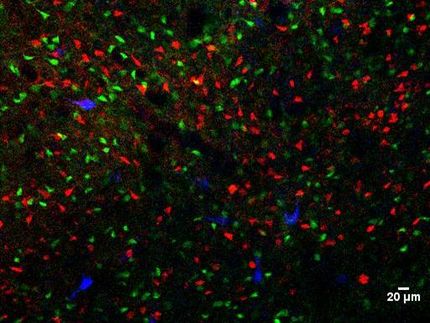Antidepressants Continue to Dominate the OCD Therapeutics Market
Treatment options for obsessive compulsive disorder (OCD) are currently dominated by antidepressants, and this trend is expected to continue for the next seven to eight years, unless drugmakers step up their future research to develop new, more effective treatments, according to a new report by GlobalData.
The new report suggests that despite an increasing public awareness of the disorder, a lack of new upcoming drugs may disappoint many sufferers of the disorder. The report does suggest, however, that the presence of non-pharmacological therapies such as psychosocial therapy may be acting as a barrier to drug usage.
Current OCD therapeutics options leave a lot to be desired, as, although several approved options are relatively safe and effective when used over time, all available drugs show high relapse rates of OCD after treatment is discontinued. Approved treatments currently include Selective Serotonin Reuptake Inhibitors (SSRI), which are more commonly known as antidepressants, and are also used as the first line of treatment for OCD patients.
The OCD drugs market showed low growth from 2006 to 2011, primarily due to the patent expiries of Zoloft (sertraline) and Paxil (paroxetine). GlobalData’s research also demonstrates that the developmental pipeline for OCD therapeutics is weak, with only nine molecules currently in development. Most clinical trials are small and sponsored by universities or institutes, and aim to discover a second line of therapy for OCD patients unresponsive to SSRIs. Little research seems to be taking place which could offer a revolutionary change in OCD treatment, as there are no molecules in development that offer a novel mechanism of action.
GlobalData’s analysis indicates that the presence of established treatment therapies, including generic drugs and off-label antipsychotics, may have led to the absence of research activity from pharmaceutical companies. This means that, in spite of a significant unmet need in terms of drug treatment, OCD sufferers can expect to see little change in their options in the near future.
GlobalData analysis indicates that the global OCD therapeutics market showed a low CAGR growth of 1.1% from 2006 to 2011, reaching a value of $317m. The market is expected to grow at a compound annual growth rate (CAGR) of 4.8%, to reach $461m by 2019.
Topics
Organizations
Other news from the department business & finance

Get the life science industry in your inbox
By submitting this form you agree that LUMITOS AG will send you the newsletter(s) selected above by email. Your data will not be passed on to third parties. Your data will be stored and processed in accordance with our data protection regulations. LUMITOS may contact you by email for the purpose of advertising or market and opinion surveys. You can revoke your consent at any time without giving reasons to LUMITOS AG, Ernst-Augustin-Str. 2, 12489 Berlin, Germany or by e-mail at revoke@lumitos.com with effect for the future. In addition, each email contains a link to unsubscribe from the corresponding newsletter.






















































